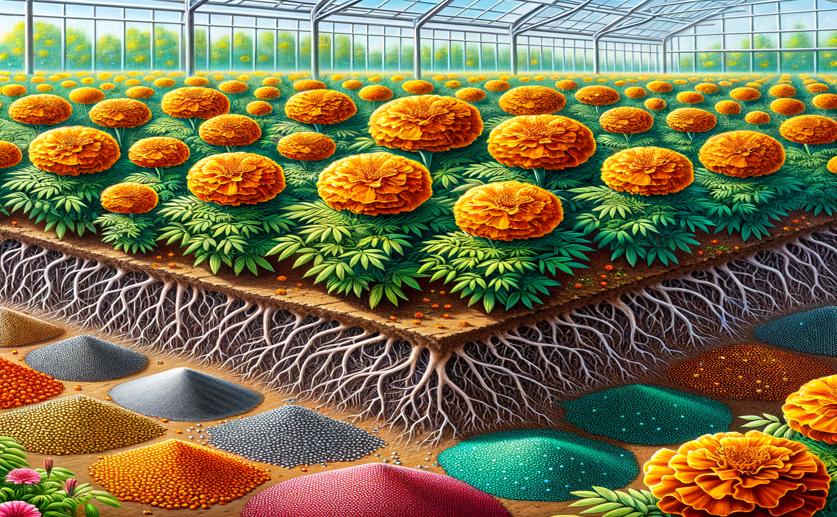
How Nano Silica Helps Marigolds Absorb Less Heavy Metals
Jim Crocker
25th June, 2024

Image Source: Natural Science News, 2024
Key Findings
- The study by the University of Zanjan found that applying 1000 mg/kg of nano silica increased soil pH by 6%, reducing the availability of heavy metals
- Nano silica reduced the concentrations of lead, zinc, copper, nickel, and chromium in the soil by 12%, 11%, 11.6%, 10%, and 9.5%, respectively
- Nano silica improved plant health by increasing phosphorus and potassium uptake by 25% and 26%, respectively, and enhancing soil enzyme activities
EnvironmentBiotechPlant Science
References
Main Study
1) Nano silica's role in regulating heavy metal uptake in Calendula officinalis.
Published 25th June, 2024
Journal: BMC plant biology
Issue: Vol 24, Issue 1, Jun 2024
Related Studies
2) Proline-mediated redox regulation in wheat for mitigating nickel-induced stress and soil decontamination.
3) Exploring the synergistic effects of indole acetic acid (IAA) and compost in the phytostabilization of nickel (Ni) in cauliflower rhizosphere.
4) Mitigating chromium toxicity in rice (Oryza sativa L.) via ABA and 6-BAP: Unveiling synergistic benefits on morphophysiological traits and ASA-GSH cycle.



 18th April, 2024 | Greg Howard
18th April, 2024 | Greg Howard